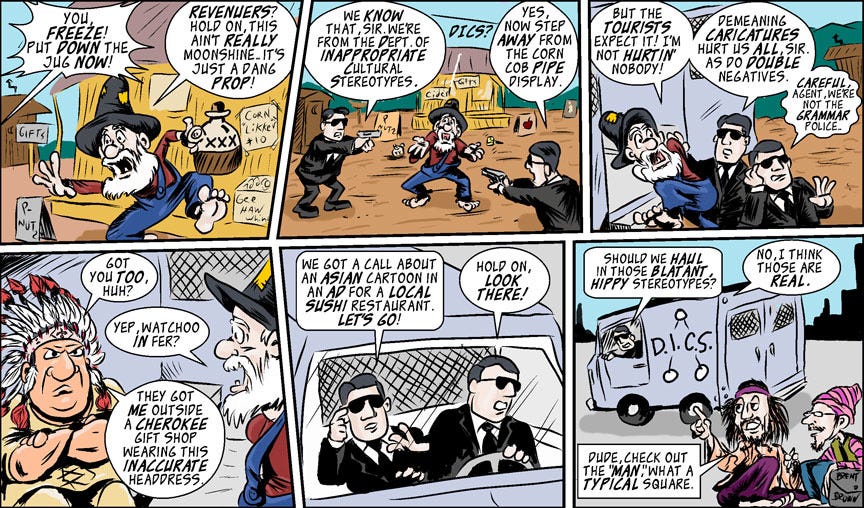Tax collectors were as reviled in ancient times as they are now, so the stories about Jesus and taxmen like Matthew need very little context for modern readers. Stewards are a different story, however; we don't really have a modern equivalent stereotype.
A steward’s job was to run the master's estate, but like the tax collectors, they took advantage of the innumerate populous and skimmed some (a lot) off the top.
The "Dishonest Steward" in today’s gospel isn't dishonest because of the deals he makes with the debtors. He's dishonest because he's been stealing from the boss as well as the tenets—working both ends of the deal, which is, honestly, too dishonest.
Reading 1
Phil 3:17—4:1
Join with others in being imitators of me, brothers and sisters, and observe those who thus conduct themselves according to the model you have in us. For many, as I have often told you and now tell you even in tears, conduct themselves as enemies of the cross of Christ. Their end is destruction. Their God is their stomach; their glory is in their “shame.” Their minds are occupied with earthly things. But our citizenship is in heaven, and from it we also await a savior, the Lord Jesus Christ. He will change our lowly body to conform with his glorified Body by the power that enables him also to bring all things into subjection to himself.
Therefore, my brothers and sisters, whom I love and long for, my joy and crown, in this way stand firm in the Lord, beloved.
Philippi was a colony of Rome, and thus the Philippians were citizens of a nation they had never and probably would never see. Paul tells them (and us) that our citizenship is also of a distant and foreign land, Heaven.
But we will get to see it someday, and live with Christ. So we need to keep our hearts and minds on eternal things, rather than earthly things.
Responsorial Psalm
Ps 122:1-2, 3-4ab, 4cd-5
R. (1) Let us go rejoicing to the house of the Lord.
I rejoiced because they said to me,
“We will go up to the house of the LORD.”
And now we have set foot
within your gates, O Jerusalem.
R. Let us go rejoicing to the house of the Lord.
Jerusalem, built as a city
with compact unity.
To it the tribes go up,
the tribes of the LORD.
R. Let us go rejoicing to the house of the Lord.
According to the decree for Israel,
to give thanks to the name of the LORD.
In it are set up judgment seats,
seats for the house of David.
R. Let us go rejoicing to the house of the Lord.
This was a song sung by ancient pilgrims visiting Jerusalem. Many likely had never seen it before, or at least rarely. It was a remarkable metropolis for a mostly rural people. They praised God for bringing them safely to the Earthly seat of God's throne, the tabernacle inside the temple. Even a shepherd in the field knew that the center of Jewish life was the Temple, and thus wanted to return there whenever he could.
Today, there is a little tabernacle in every Catholic church, and we can visit any time. adoration is something we take advantage of far too infrequently. Possibly because it's so convenient, it's easy to think the Eucharist will always be there. But ask any Christian living in a war-torn city or under an oppressive regime, and we'll quickly see just how blessed we are to have the opportunity.
Alleluia
1 John 2:5
R. Alleluia, alleluia.
Whoever keeps the word of Christ,
the love of God is truly perfected in him.
R. Alleluia, alleluia.
John knew Jesus personally. He traveled the countryside with Him, ate meals with Him, talked with Him. So when he quotes Jesus in this letter, he knows exactly what he's talking about. It's an eyewitness account, which we are blessed to receive and learn from.
Gospel
Lk 16:1-8
Jesus said to his disciples, “A rich man had a steward who was reported to him for squandering his property. He summoned him and said, ‘What is this I hear about you? Prepare a full account of your stewardship, because you can no longer be my steward.’
The steward said to himself, ‘What shall I do, now that my master is taking the position of steward away from me? I am not strong enough to dig and I am ashamed to beg. I know what I shall do so that, when I am removed from the stewardship, they may welcome me into their homes.’
He called in his master’s debtors one by one. To the first he said, ‘How much do you owe my master?’ He replied, ‘One hundred measures of olive oil.’ He said to him, ‘Here is your promissory note. Sit down and quickly write one for fifty.’
Then to another he said, ‘And you, how much do you owe?’ He replied, ‘One hundred measures of wheat.’ He said to him, ‘Here is your promissory note; write one for eighty.’
And the master commended that dishonest steward for acting prudently. For the children of this world are more prudent in dealing with their own generation than the children of light.”
The steward knows he's about to get kicked out on his ear, because the master caught him with his hand in the till. But when he re-writes the promissory notes, the steward isn't eliminating the debt they owe to the master. Those financial arrangements are perfectly legitimate, and he's not interfering with them.
What he's actually doing is cutting the grift he added on top of the legal debt. It was quite a scam, too. With one debtor, the steward had added 25% to his debt; with another, he had fully doubled it. That's worse than the tax man!
But the steward recognizes his time is near an end. He's not going to hold any grudges, but instead, releases everyone from any debts they owe him. And what does the master do when he sees this? He recognizes the steward's change of heart, and forgives him as well!
When we understand the cultural context, the parable makes much more sense. God is the master, to whom we all owe a debt. But we also owe debts to one another. And remember Matthew's version1 of the Lord's Prayer—"Forgive us our debts, as we also forgive our debtors."
What we do in this world affects what happens to us in the next. We should plan for it, just like the steward, who goes from dishonesty to prudence.




